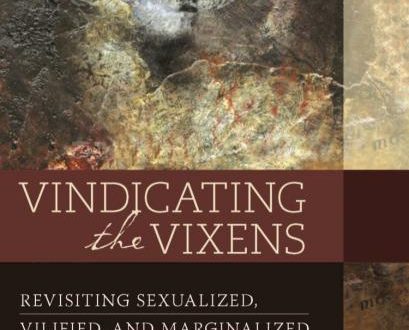Want Fries with That?
A group of escapees comes to an intersection in the labyrinth.
"I think we should go right," one woman says.
Left. You need to go left. The voice is insistent in your head. "We need to go left," you tell the group.
"But you can’t even see. How do you know?" someone asks.
"I just know."
Left you all go and in moments arrive in safety.
A group of escapees comes to an intersection in the labyrinth.
"I think we should go right," one woman says.
Left. You need to go left. The voice is insistent in your head. "We need to go left," you tell the group.
"But you can’t even see. How do you know?" someone asks.
"I just know."
Left you all go and in moments arrive in safety.
This is a scene from the movie X-Men Origins: Wolverine, but it aptly describes our expectations for decision-making: a mysterious voice in our heads tells us the way. It is the voice of God, and who can argue with that?
We face dozens of decisions every day, most of which, rightly so, we decide on without much thought: What should we wear? What route should we take for work? Do we want fries with that?
But then come the doozies, the decisions about family, career, church, location. Should we send our child to public school or Christian school or homeschool them? Should we quit this job that makes us want to take an ice-pick to an eye at the end of every day? What do we do about that family member who continues to ruin his life no matter how many times we bail him out?
For those of us in ministry, we have a double-whammy. Not only do we need to make these decisions in our lives, but those under our care come to us for guidance in these matters.
These are important decisions, and we want to make sure we are in the center of God’s will for us. So as we process, we look for opened and closed doors, red and green lights, or we may put out a fleece. (This last one is particularly ironic. In the biblical story, Gideon put out a fleece not to understand what he should do–the angel of God had made that abundantly clear–but to delay and hopefully avoid what the angel had told him to do.) We hope God will reveal his will for us, and eventually we come to a decision that gives us his peace.
In the end, this pious language cloaks how we really make our decisions–based on our desires.
Over the next several weeks, I’ll be looking at biblical decision-making. We’ll discuss how we know and act on God’s will, how we can have God’s wisdom in making decisions, and how we can have God’s peace. I’ll be honest: This may be uncomfortable. I believe our spirituality is more influenced by cultural notions of colored parachutes and mountain paths than it is by biblical wisdom. I believe we prefer the comfort of pious language to the hard work and responsibility of cultivating wisdom. But I also believe that as we come to a biblical understanding of God’s will and wisdom, we find freedom in serving him.


6 Comments
Karyn
Heather, I’m really looking
Heather, I’m really looking forward to this series. I love this topic! In fact, we chose Wisdom as the theme for Moms ‘n Mosa!cs one year. I can’t wait to read your wisdom on wisdom 🙂
Heather A. Goodman
Thanks, Karyn! We should
Thanks, Karyn! We should compare notes. I’d love to hear about how you’re approaching the topic.
Elaina Avalos
Looking forward to reading
Looking forward to reading your thoughts on this topic.
Sarah
Brava, friend…brava!
Brava, friend…brava!
Heather A. Goodman
I warned you I’d be talking
I warned you I’d be talking about this! 😉
Pamela
supersize me – with wisdom fries
absolutely